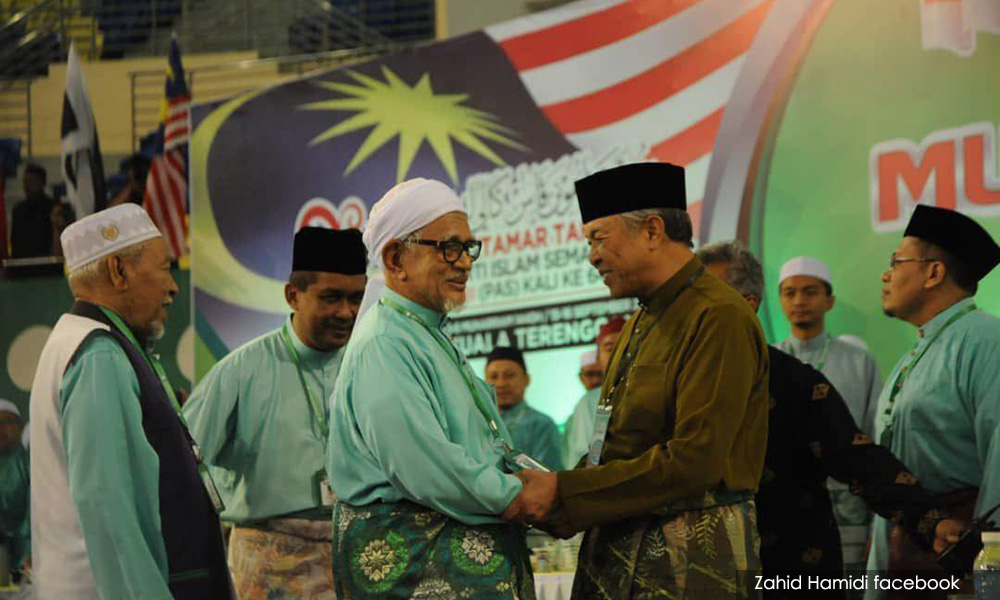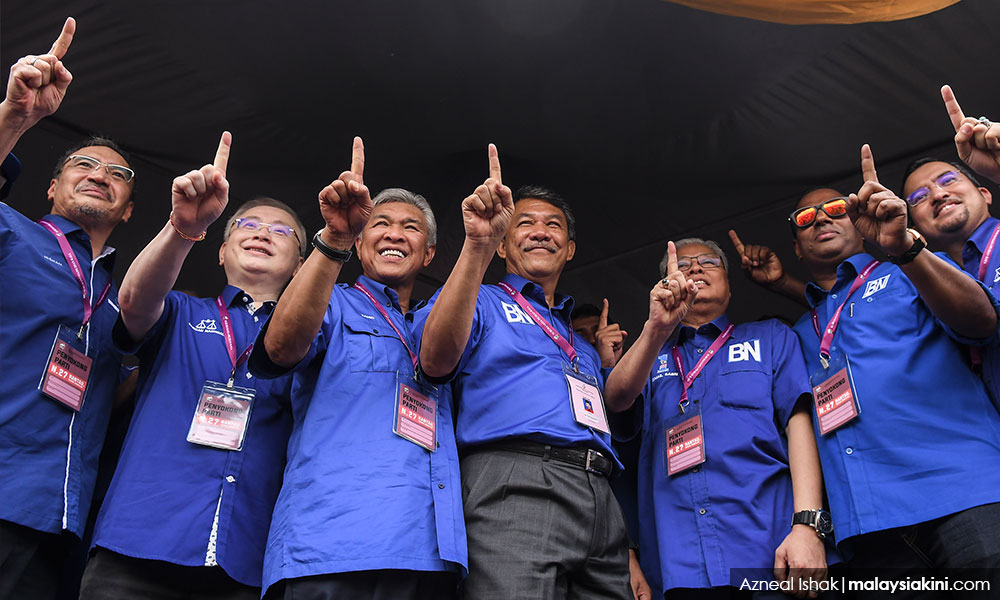
Published by The Star, image from The Star.
TUN Dr Mahathir Mohamad’s visit to Turkey was meant to be exceptional, and the expectations materialised – starting with President Recep Tayyip Erdogan unexpectedly coming to the airport to meet Tun M in person to the national reception with according honours and the programme of this visit.
In March, Dr Mahathir had the same level of reception when attending a military parade on the occasion of Pakistan’s National Day in Islamabad and witnessing the groundbreaking ceremony for a Proton plant in Karachi.
This time in Turkey, he spoke of new leadership in the Muslim world, including both Turkey and Pakistan into the backbone of this prospective arrangement.
Does this visit manifest a new development in strengthening alliances across Asia?
Indeed, the programme of bilateral talks over four days included all the strategically important topics, as Dr Mahathir was accompanied by Foreign Minister Datuk Saifuddin Abdullah, Defence Minister Mohamad Sabu and International Trade and Industry Minister Datuk Ignatius Darell Leiking.
Trade-wise, it seems that Malaysia and Turkey wish to unlock the full potential of economic interaction. At the moment, even though the two countries managed to elevate trade to US$3.14bil (RM12.9bil) in 2017 with a little downslide to US$2.38bil (RM9.8bil) in 2018, they have yet to hit the target of US$5bil (RM20.6) by 2020 set in 2014 when the two countries signed a free trade agreement (“M’sia-Turkey FTA to take effect after four years of talks”, The Star, July 16, 2015).
The trade balance remains largely skewed towards Malaysia, though Ankara has not voiced much concern over it. The Turkish share in Malaysian trade volume is still lower than that of Malaysia’s top Middle Eastern trade partners, Saudi Arabia and the United Arab Emirates. Therefore, to make talk of having Turkey as “an alternative trade partner” to Malaysia come true will require more effort on both sides.
With Mat Sabu accompanying Dr Mahathir on this visit, defence cooperation was obviously on the agenda.
Turkey has been maintaining a bold stance in strengthening its defence capabilities and deploying troops. It was a participant in the Syrian conflict and has security high on its policy priorities. Malay-sia, on the other hand, cut its defence budget by 10% and, so far, has not given indications of enlarging its military capacity.
In fact, Dr Mahathir’s speech at the Future of Asia (Nikkei Con-ference) in Tokyo in May was an acknowledgement that guarding the country against traditional military risks does not preside over other concerns, like economic or technological development: “Every-body knows if any countries want to invade Malaysia they can walk through and we will not resist because it is a waste of time, ” he said then (May 31, The Star Online).
In fact, Turkey has been showcasing its military sovereignty by choosing military suppliers without seeking approval from Nato (the North Atlantic Treaty Organ-isation), of which it is a member.
In the past week, Russian S-400 missile defence systems were delivered to Turkey, thwarting the Turkish-American contract for supply of F-35 jet fighters. The story implicitly played in favour of Russia, to irritation coming from the United States. Could this mean then that Malaysian-Turkish hopes for cooperation in defence somehow represents Putrajaya’s attempt to balance its foreign aspirations against the West?
On this trip, the Malaysian delegation visited Turkish Aerospace Industries, which produces fifth-generation TF-X multirole fighter jets as well as attack helicopters.
One might recall that Pakistan also demonstrated its JF-17 jets to Dr Mahathir during his visit to Islamabad, and the prime minister spoke of the possibility of purchasing those. Right after that, also in March, during the Langkawi International Maritime and Aerospace Exhibition, Russia offered an offset deal to trade Malaysian palm oil for SU-35 and SU-57E jet fighters.
Which of the deals (or none) Malaysia is going to eventually choose, depends on the military budget and how high it is on the agenda. So far it has not been a priority and Turkish media did not report that any commitments were made.
However, speaking to Ankara on defence capabilities, the delegation probably meant to make another point and that was to speak of the breadth bilateral cooperation might have and where Putrajaya’s strategic hopes lie.
Diplomatic ties between modern Malaysia and Turkey were established in 1964, but the historical ties between the two nations go back to the 15th century.
And now, more than ever, the two strongmen on both sides of Asia can talk about common approaches to world affairs.
In fact, it seemed that both Malaysia and Turkey toned down their rhetoric on China’s “Xinjiang problem”, while keeping the economy as a higher priority in mind. After an unequivocal condemnation of how China deals with its Muslim minority issued by Turkey in February, not many Turkish politicians still talk about the issue.
But during this visit, the parties discussed the Uighur issue as well, as Turkey sees Malaysia having more experience in constructively dealing with China and balancing a high moral ground and economic interests.
While probably keeping the Uighurs and China for behind-the-curtain talks, in public, both leaders were eloquent about Palestine and the Rohingya of Myanmar.
Dr Mahathir suggested that “Malaysia and Turkey could work together to keep the Palestine issue alive despite efforts to extinguish the matter completely” (“Dr M says Malaysia, Turkey need to work together to keep Palestine issue alive”, July 27, The Star Online).
Overall, the Malaysian Prime Minister spoke of “the need for Muslim countries like Malaysia, Turkey and Pakistan to pool their resources to make Islamic civilisation great again”.
It appears that two potential leaders of the Muslim world – Erdogan with his vehemently independent stance despite Nato membership, and Dr Mahathir, who used to be hailed for Malaysia’s moderate course in the Muslim world and support for Palestine’s plight – arguably showed an intention to exercise this leadership together during the four-day visit.
Intentions to strengthen all aspects of cooperation, including economic and defence ones, only speak in favour of their optimism.
Would Pakistan and other Muslim countries join to this collective leadership urge? Let’s see.
Julia Roknifard is Director of Foreign Policy at EMIR Research, an independent think-tank focused on strategic policy recommendations based upon rigorous research.

